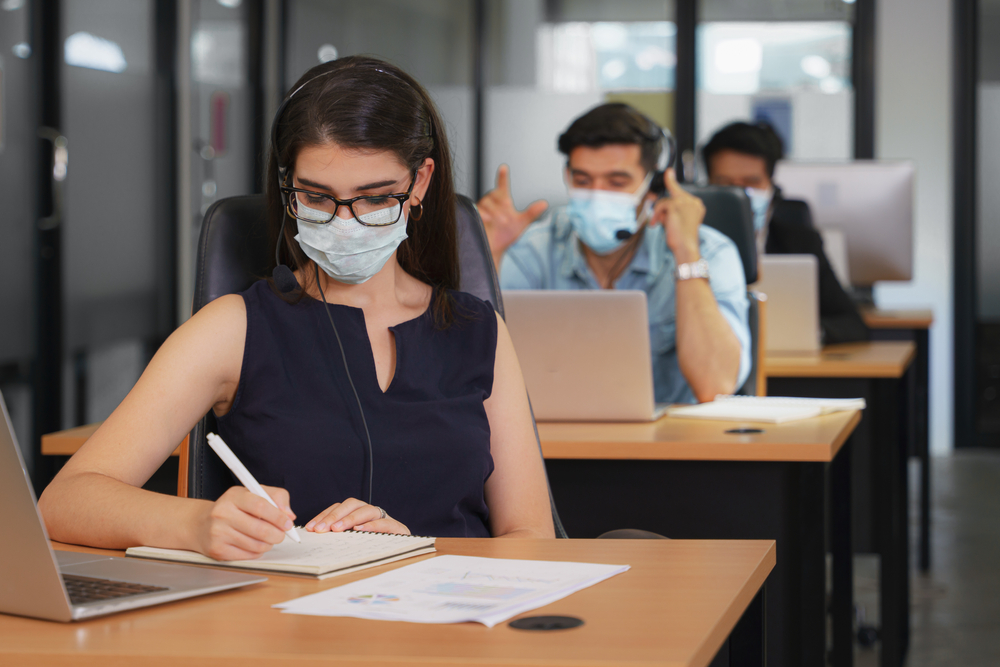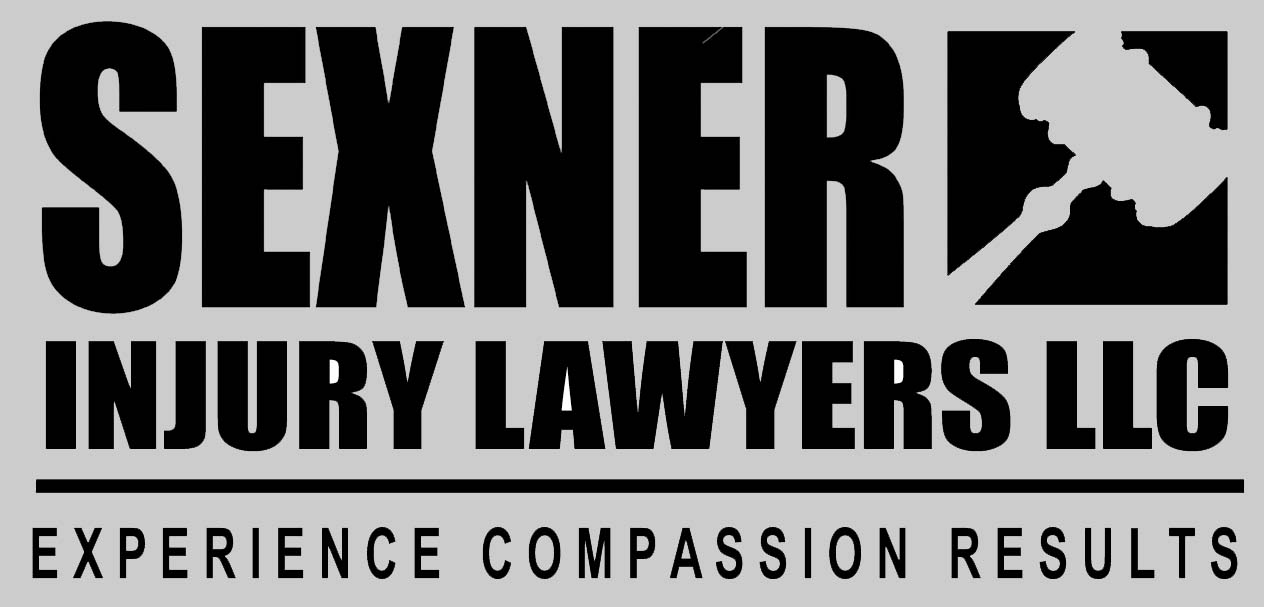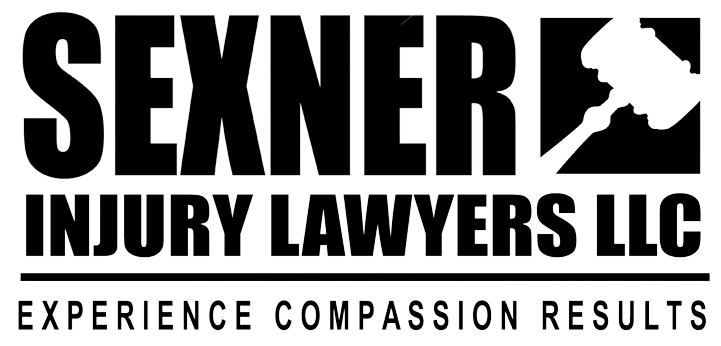 Let’s face it. You’re exposed to diseases all the time. On any given day, you may be in close contact with people who (or objects which) carry the flu, the common cold, measles, tuberculosis, salmonella, or hepatitis for example. You just never know. Unless you never leave your home, anything can happen. And if you do catch something from someone or something else, you usually can’t successfully sue to recover monetary damages over what amounted to an unintentional accident.
Let’s face it. You’re exposed to diseases all the time. On any given day, you may be in close contact with people who (or objects which) carry the flu, the common cold, measles, tuberculosis, salmonella, or hepatitis for example. You just never know. Unless you never leave your home, anything can happen. And if you do catch something from someone or something else, you usually can’t successfully sue to recover monetary damages over what amounted to an unintentional accident.
But these days, the big question revolves around Covid 19. So, under what circumstances can someone else actually be held responsible and be successfully sued by another person for contracting Covid?
Intentional or Reckless Transmission of Covid
It’s not normal for rational people to intentionally try to infect other people, but it does happen from time to time. Probably the most common example involves that of a sexually transmitted disease. There are many times when one person knows that they have an STD, but intentionally fails to inform the other party of their condition. It may be that they’re uncaring or selfish. Or it may be because they truly intend to transmit the disease to another. Whatever the case, when this happens the other party is deprived of the opportunity to make an intelligent personal choice. In the area of personal injury law, when one person is harmed due to the negligent, reckless or intentional act of another, this is called a “tort”. When a tort occurs, the aggrieved party can sue the other person in civil court in an attempt to recover monetary damages.
In the case of Covid 19 or any other communicable disease, a person might intentionally try to infect the other person, whether by spitting at them or purposely breathing in their face, etc. Just like an intentional attempt to transmit a sexually transmissible disease, this kind of aberrant behavior would also be subject to a civil lawsuit in tort seeking monetary damages. In actual practice however, it would likely be difficult to find an attorney willing to undertake this sort of lawsuit on a contingency basis (when no fee is charged unless successful), because insurance companies do not insure policyholders against things that are done on purpose (intentional) and insurance companies are the primary source via which money damages are recovered. Homeowners insurance policies for example, only insure against negligence, which means accidents or mistakes only; not when people try to hurt others intentionally.
One last consideration about those who try to infect others or do so in a reckless manner. In addition to any civil lawsuits which may be brought, such behavior may also be considered a crime and that person may be subject to arrest as well.
Negligent Transmission of Covid-19
Of course, most people aren’t that unpleasant or malevolent and never intentionally try to hurt others like that. But negligent transmission happens much more commonly. Negligence is basically carelessness. It’s when a person fails to exercise the amount of care that someone of normal prudence would have used under the same circumstances. It doesn’t have to be something that they affirmatively did though. It can also be something that they failed to do but probably should have done under the circumstances. It refers to an “accident”, not an “on purpose” in other words.
Lawsuits initiated by personal injury lawyers in Chicago and elsewhere are almost always based upon the negligence of the other party. It may be a car accident where someone got injured and it’s been alleged that the other party drove their car negligently. Or it may be that a surgeon committed medical malpractice in how they performed an operation or negligently failed to properly diagnose a medical issue.
In the case of Covid 19, negligence might involve any number of acts or omissions, such as:
- Failing to require employees to get vaccinated, wear masks, or monitor their vaccination status, especially in highly transmissible settings such as nursing homes or other such businesses
- Allowing Covid-positive employees to return to the workplace too soon or failing to require a negative test before returning
- In settings where Covid-positive patients are present such as hospital emergency rooms or nursing homes, failing to take adequate precautions to segregate such patients and protect others from transmission
- Failure to follow CDC guidelines or public health orders
- Failure of cruise ships to properly implement Covid protocols and effectively protect passengers in such confined spaces
Proving Negligence
It’s one thing to allege that a person contracted a disease or illness in a particular way, but ultimately an entirely different thing to prove it by a preponderance of the evidence, as is the burden of proof in such civil tort cases.
A reasonable analogy involves how difficult lawsuits alleging food poisoning such as Salmonella, Listeria, Campylobacter or Rotavirus can be to prove. A plaintiff could file such a civil lawsuit against a food handler and demonstrate that they were completely healthy before, that the only thing they ate that evening was this food product, and that immediately thereafter they fell ill. But because food-borne illnesses can be contracted from any number of sources, it might not be enough to prove negligence to a jury by a preponderance of the evidence. In food poisoning cases, it’s highly advised that a person who suspects a tainted product should take a sample of the actual food product, immediately refrigerate it, or take it right away to a lab where it can be analyzed. But of course, how many people have the presence of mind to do that? Hardly anybody of course.
In the same way, it may not be enough for a successful lawsuit that a business failed to follow CDC guidelines or failed to properly monitor employee vaccinations and then that person later became infected. People come into contact with many other people in many settings during the course of a day and may have become infected from another source. So, proving negligent transmission is often easier said than done, although every case is different.
Workers' Compensation Claims for Contracting Covid on the Job
Workers’ Comp covers employees who contract an “occupational disease” arising out of and in the course of their employment. It also covers such occupational diseases which become aggravated or disabling as a result of exposure at work. When dealing with a typical workers’ comp situation, such as a spinal cord injury or a wrongful death that occurred on the job, it’s not often difficult to connect the dots and prove that this particular injury was work-related.
But as described in the previous section about “proving negligence”, the origin of a disease is often much more difficult to prove. In response to this concern, the Illinois Governor signed a law that created what is called a “rebuttable presumption” that front-line workers and first-responders who are exposed to Covid 19 on the job are presumed to have contracted the disease through their employment. The term of this law has been extended and at the time of this article was still in force. It makes it much easier for those kinds of workers to get compensation. That presumption however does not extend to all workers; just front-line and first responders. Other kinds of workers who believe that they contracted the disease as a result of exposure on the job will have to prove the connection as they would for any other type of work-related injury.
Workers' Compensation Claims for Complications from a Required Shot
There is another Covid-related workers’ Compensation situation that has been occurring recently this year as well. It involves employers in Chicago and across Illinois who are requiring their employees and workers to get vaccinated, when those workers subsequently experience complications. Sometimes the employer requires the vaccinations because the business employs in excess of 100 people and is mandated to require the shot by the State of Illinois, while in other cases some employers have just chosen to require the vaccinations.
In contrast to the more common scenario where a person voluntarily chooses to get vaccinated and then suffers complications, situations involved mandatory shots are arguably different. As a shot of this nature was required as a condition of work, the complications that follow will also be considered by many worker’s comp attorneys to be an injury that arises out of the employment, and therefore compensable under the laws governing workers’ compensation. Whether the Illinois Workers’ Compensation Commission agrees with that assertion will of course be handled on a case-by-case basis after filing an application for adjustment of claim.
Speak to an Experienced Chicago Injury Lawyer Now
Since 1990, the legal injury team at Sexner Injury Lawyers LLC has helped deserving clients recover millions of dollars in settlements and verdicts in the areas of workers’ compensation, medical malpractice and personal injury law. Whether the injury involved a failure by a hospital to properly care for their patient or failure by the police to properly protect a person in custody, we can help. Call us today at (312) 243-9922 for free and important advice.

